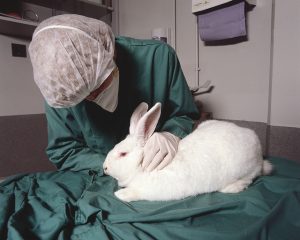Several months ago I published an article explaining the critical situation of Vaquita – the smallest porpoise in the world, whereby there are only 30 individuals still alive in the wild. To find out more about the reasons for this situation read my previous post – Vaquita – the smallest whale in the world is critically endangered. Since then, operations have taken place and the outcomes didn’t entirely meet the expectations.
Because of the animals’s critical situation, Vaquita CPR scientists concluded that the only chance of Vaquitas survival was rescue by capture. At the beginning of autumn in 2017, the capture process launched and there was an attempt to catch 2 Vaquita individuals in order to put them in a sanctuary in San Felipe, Mexico.
Capturing wild animals that never experienced human care was a huge risk but because of very low numbers of these sea mammals remaining in the wild, this attempt was a necessity. Unfortunately both Vaquitas captured didn’t cope well within the closed environment.
After they have been transported to the specially constructed sea pen, one’s condition started to worsen which convinced the scientists that releasing her back into the deep waters is the best solution. Unfortunately, the Vaquita did not make it.
Whilst the mature female passed away, one immature female has been released back into the wild,
Failing the attempts to capture this critically endangered mammal, scientists made the decision to suspend the capture operation to avoid further loses. Gathering photographic identification of individual Vaquitas is their current focus. The aim is to improve our understanding of their ranging patterns and keep track on the numbers.
Initiatives supported by the Mexican government are taking place alongside the VaquitaCPR operations. These include the support for enforcement of the gill net ban and removal of gill nets which are a key cause for this situation. Have a look at my previous post mentioned above for more details and an explanation why again, this might not be enough.
What’s left to do?
- Most importantly, we can help to raise awareness. The reason for such high level of careless, illegal fishing in the Sea of Cortez is the high demand for Totoaba bass in the Chinese black market. Speak up, boycott such trade
- Only buy sustainable seafood, if you have to buy seafood at all. Fish nets are the direct cause of death of Vaquitas. Make smart choices.
- Support the gulf of California in terms of tourism as an alternative to fishing. This can help to address socioeconomic issues which affect the lack of law enforcement.
- Sign petitions on change.org or WWF
- Adopt a vaquita
Find out more details on the operation on VaquitaCPR webiste
https://www.vaquitacpr.org/vaquitacpr-field-operations-update/
Stay up to date. Follow @VaquitaCPR
Let’s hope there is still a chance of survival for Vaquitas.
Milena x



